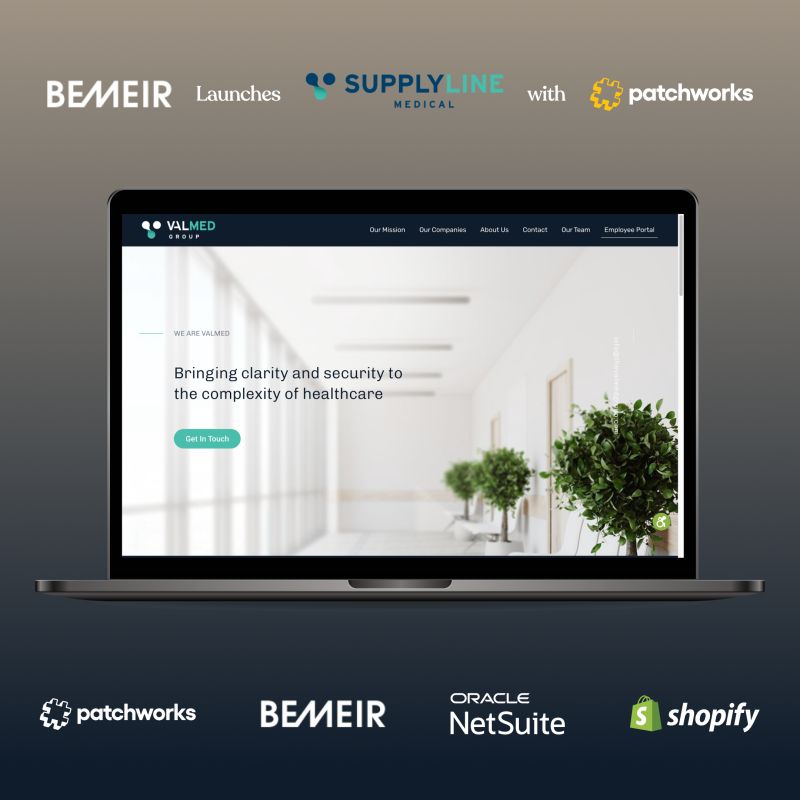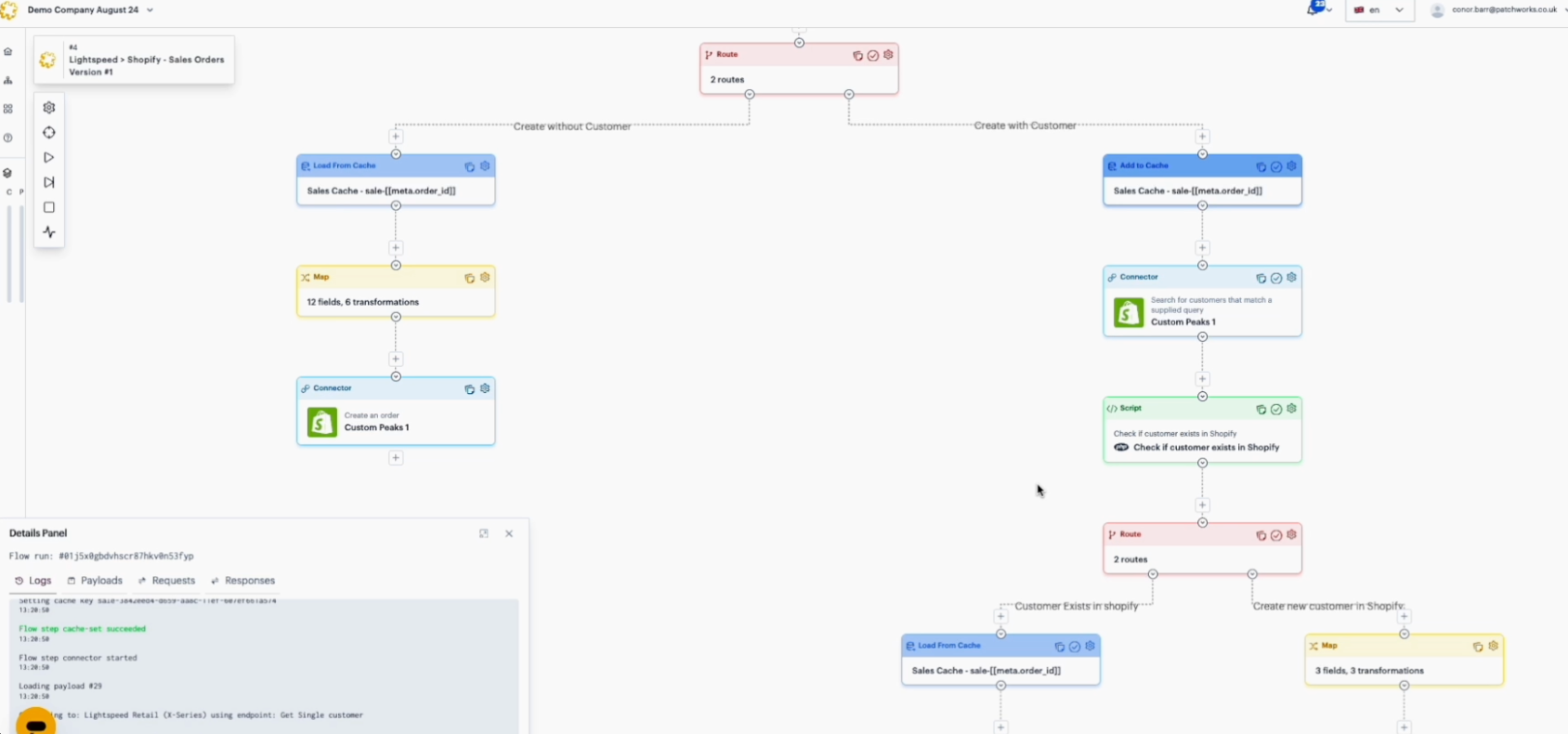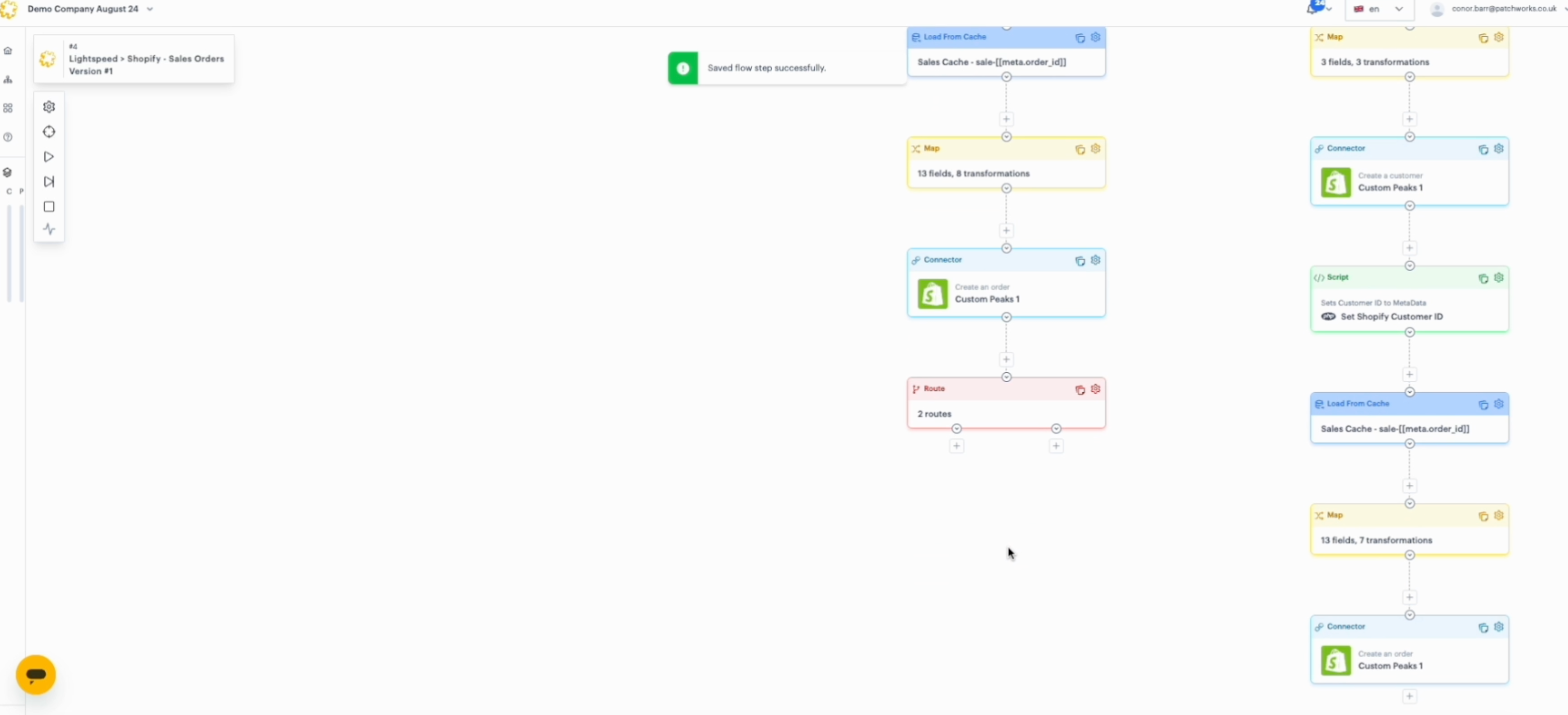Discover the Speed, Flexibility, and Future-Proof Power of iPaaS for Modern Business Growth
In today’s fast-paced digital landscape, choosing the right integration approach can make or break a company’s ability to innovate and stay competitive. Here’s a breakdown of iPaaS vs. custom integrations, with insights into why an Integration Platform as a Service like Patchworks might be the better option for many businesses.
Speed and Efficiency
With iPaaS, integrations move quickly. Patchworks offers pre-built connectors as well as a connector builder feature, avoiding lengthy development cycles. This is especially beneficial for businesses aiming for rapid time-to-market and high growth, as custom-coded integrations typically require significant time and developer expertise to create and maintain. Faster integrations enable businesses to respond to new demands almost instantly, meeting consumer expectations without lengthy delays.
- iPaaS: Patchworks provides pre-built connectors and templates, enabling faster integrations by avoiding the need to start from scratch. This means that connecting systems is streamlined, with most integrations taking a fraction of the time compared to custom code.
- Custom Code: Custom integrations take significantly more time, as developers need to write and test the entire integration manually. This not only delays project timelines but also increases the chances of errors during the process.
Simplicity and User Access
Patchworks' no-code/low-code interface allows non-technical users to manage and monitor integrations independently, reducing dependency on developers and driving down costs. Custom integrations, on the other hand, are complex and often only accessible to technical teams, which can add overhead and cause delays when quick updates are needed.
- iPaaS: Patchworks makes integration accessible to non-developers as well. Its intuitive, user-friendly interface reduces the dependency on technical staff or third-party developers, lowering operational costs.
- Custom Code: Custom integrations are developer-dependent. Non-technical team members are unlikely to manage or monitor integrations effectively, which often leads to the need for additional developer resources and higher outsourcing costs.
Flexibility and Scalability
In a modern eCommerce environment, flexibility and scalability are essential. iPaaS allows businesses to scale easily and make changes as needed without disrupting current workflows. Custom integrations, while highly tailored, can be costly and complex to scale, requiring new development every time a system changes or new data sources are added.
- iPaaS: Patchworks allows businesses to experiment freely with adding or replacing systems without worrying about breaking integrations or data loss. It’s designed to easily scale alongside business needs. The Patchworks MACH Alliance membership underscores their commitment to delivering future-proof technology solutions and best of breed industry standards.
- Custom Code: Custom integrations are rigid and harder to scale. As new business needs emerge, every change in the system requires additional custom coding, which increases complexity and introduces new risks to data integrity.
Automation for Better Efficiency
One of the key benefits of iPaaS is automated workflow management, keeping data synchronised in real time. For example, with Patchworks, stock updates, order flows, and customer data can all be synced without manual intervention. Custom solutions require significant development effort to achieve a similar level of automation, making it an impractical choice for businesses with complex or growing data needs.
- iPaaS: Patchworks automates workflows by syncing real-time data, such as sending product stock updates from an ERP to an e-commerce or PIM system. This reduces manual work and improves efficiency.
- Custom Code: Automating complex workflows with custom code requires extensive programming efforts and constant maintenance. This is both time-consuming and error-prone, especially when handling multiple systems.
Security and Compliance
Maintaining security across multiple data channels is paramount. Patchworks provides built-in security and compliance features, ensuring that data flows adhere to industry regulations such as GDPR, SOC2, and ISO 27001. Custom-built solutions, however, require ongoing attention to ensure they remain compliant, which can strain resources and introduce risk over time.
- iPaaS: Patchworks guarantees high levels of security and compliance, with regular updates that meet evolving industry standards. It also ensures businesses remain compliant with key privacy regulations like GDPR, HIPAA, and SOC2.
- Custom Code: Maintaining security and compliance in a custom-coded solution is resource-intensive. Businesses need to continuously update their integration to keep up with new security protocols and compliance regulations, often requiring expert knowledge.
Cost-Effectiveness and ROI
Custom integrations are often more expensive upfront, with ongoing maintenance costs. By contrast, Patchworks' iPaaS offers a cost-effective, managed solution that covers integration needs without hidden costs. Businesses achieve faster ROI as they’re able to launch quickly, leverage automation, and avoid resource-heavy maintenance costs.
- iPaaS: Patchworks reduces costs by providing a complete integration solution that eliminates the need for custom development, ongoing maintenance, and troubleshooting. All integrations are visible on a single platform, minimising risks of hidden costs or "black box" systems. Patchworks has also been recognised in the G2 Fall reports as a Leader in iPaaS, Data Mapping and Ecommerce across different territories and categories including Best ROI.
- Custom Code: The costs of building, maintaining, and troubleshooting custom code can spiral over time. Custom integrations often require frequent updates, which can lead to budget overruns and diminished ROI.
Monitoring and Real-Time Insights
iPaaS platforms like Patchworks come with dashboards and real-time monitoring, empowering businesses to track and resolve any integration issues quickly. This visibility offers powerful insights, enabling teams to make informed decisions based on live data. Custom integrations often lack such built-in monitoring, requiring additional resources to develop similar tracking capabilities.
- iPaaS: Patchworks provides a centralised view of all data flows and integrations, giving businesses full visibility and actionable insights into how their systems and processes are performing. These insights can drive improvements in areas like customer engagement and operational efficiency. Patchworks offers built-in monitoring and logging tools, enabling businesses to detect and troubleshoot errors in real time. The intuitive dashboard allows users to resolve issues quickly, reducing downtime and manual resources.
- Custom Code: Data visibility is often limited in custom integrations unless additional effort is spent on developing dashboards or monitoring tools. This adds to the overall complexity and cost, while not providing the real-time insight that iPaaS platforms offer out of the box. Monitoring and logging features need to be developed manually for custom integrations, which is a time-intensive process. Troubleshooting errors can take longer, leading to more downtime and higher resource costs.
Conclusion: iPaaS as the Ideal Solution
For modern enterprises, iPaaS solutions like Patchworks provide a practical, future-proof approach to integration, reducing the time, risk, and cost associated with custom builds. While some companies may benefit from custom coding for highly specialised needs, the vast majority will find that iPaaS offers the flexibility, scalability, and ease of use needed to succeed in a dynamic market. For companies prioritising growth, adaptability, and a robust ROI, iPaaS stands out as the optimal solution for today and the future.


















































